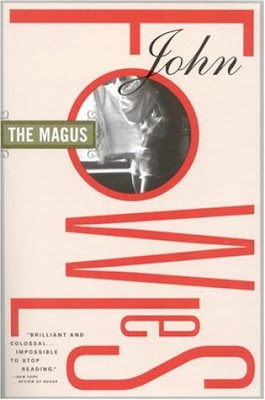 |
| The Magus |
Title: The Magus
Author: John Fowles
Publication Date: 1965
Pages: 656
How I Found It: 100 Best Novels list
Date Completed: 4/19/16
Summary: Nicholas Urfe takes a job teaching on a small Greek island. Once there, he becomes unwittingly embroiled in a game of trust, tests, and defining reality.
What I Thought: This book is weird. Not bad, but weird. Because Fowles spends the whole time playing with the definition of reality, the reader struggles alongside Nicholas in determining just what is going on. This makes for an interesting and, at times, confusing reading experience.
I really liked the actual story. Nicholas is clearly going through that new adult phase of trying to figure out what in the world he is meant to be doing with his life. He's struggling with his profession, his relationships, his worldview...just about everything. Enter Maruice Conchis, a man who, at first, seems to have a lot of answers and valuable guiding wisdom. As it turns out, he has is own motives, the virtue of which quickly becomes murky. Throw in a confused love triangle and Fowles really has a great plot.
It's just that things get real weird. It's interesting along the way, for sure, but the events are so strange at points. It's no wonder Nicholas becomes so broken and unable to properly function in the world. His entire sense of reality has been stripped from him. That he is not a complete, sniveling, paranoid, crazy person at the end is miraculous. Although...he is a little bit....
Fowles waxes very philosophical throughout the book. Philosophy clearly is the driving force of the novel. Thankfully, I like philosophy and sociology, so I didn't really have a problem with that. It was interesting to see the topics played out so gracefully in a fiction work. This book is definitely not for everyone. I'm not even sure it was for me. I keep going back and forth. Maybe because I, like NAME, am still trying to figure out which characters were actually telling the truth when and what their motives were.
Quotes I Loved:
- "If there is a hell, then it is that. Not flames, not pitchforks, but a place without the possibility of reasons.
- "Millions of Germans did betray themselves. That was the tragedy. Not that one man had the courage to be evil, but that millions had not the courage to be good."
Rating: ★★★☆
Will I Re-Read: Maybe
A Reduced Review: Confusing and intricate, yet so well written. Proceed at the risk of your own mental stability.












No comments:
Post a Comment